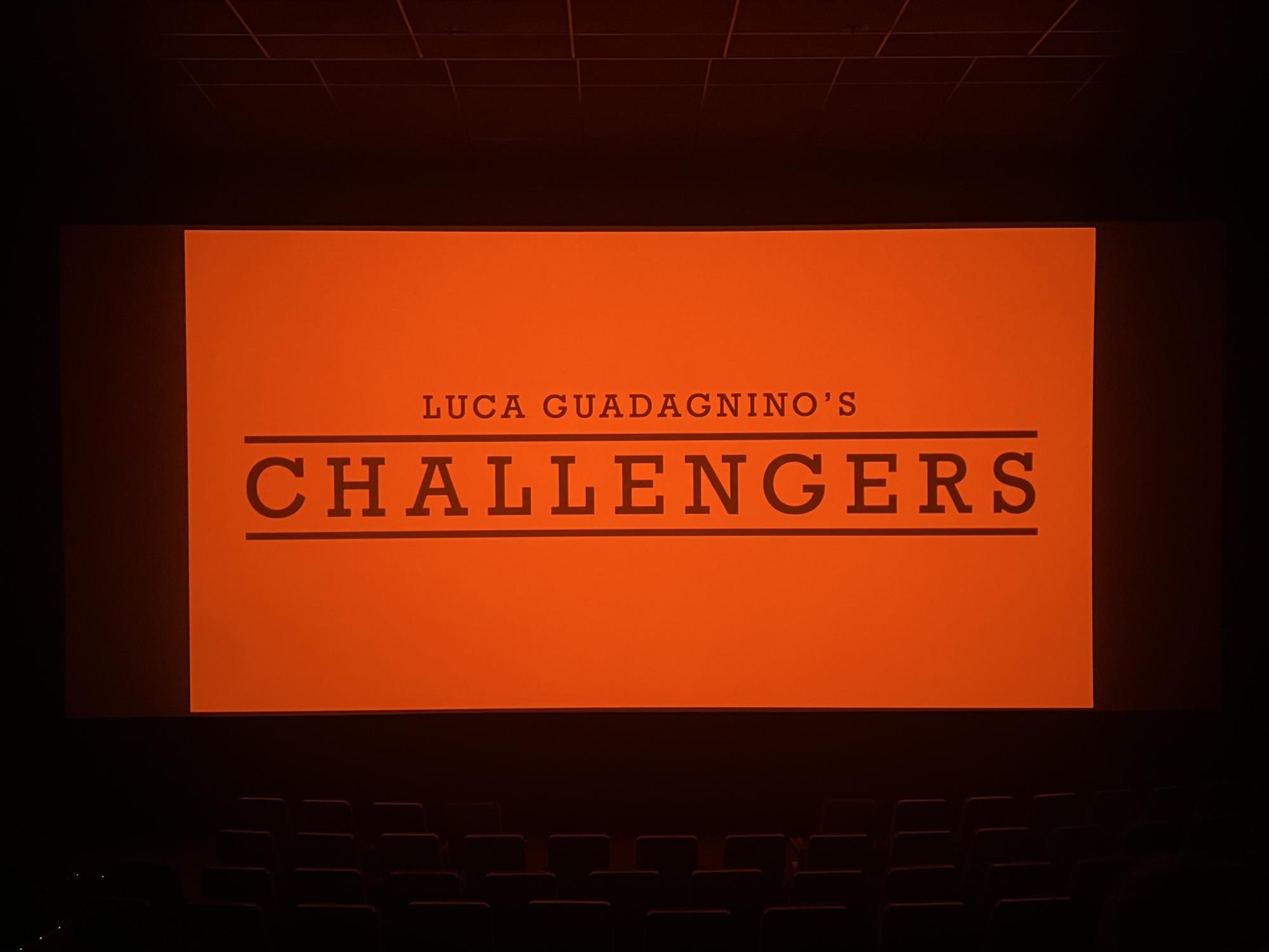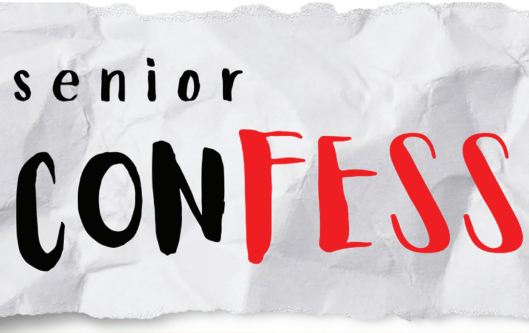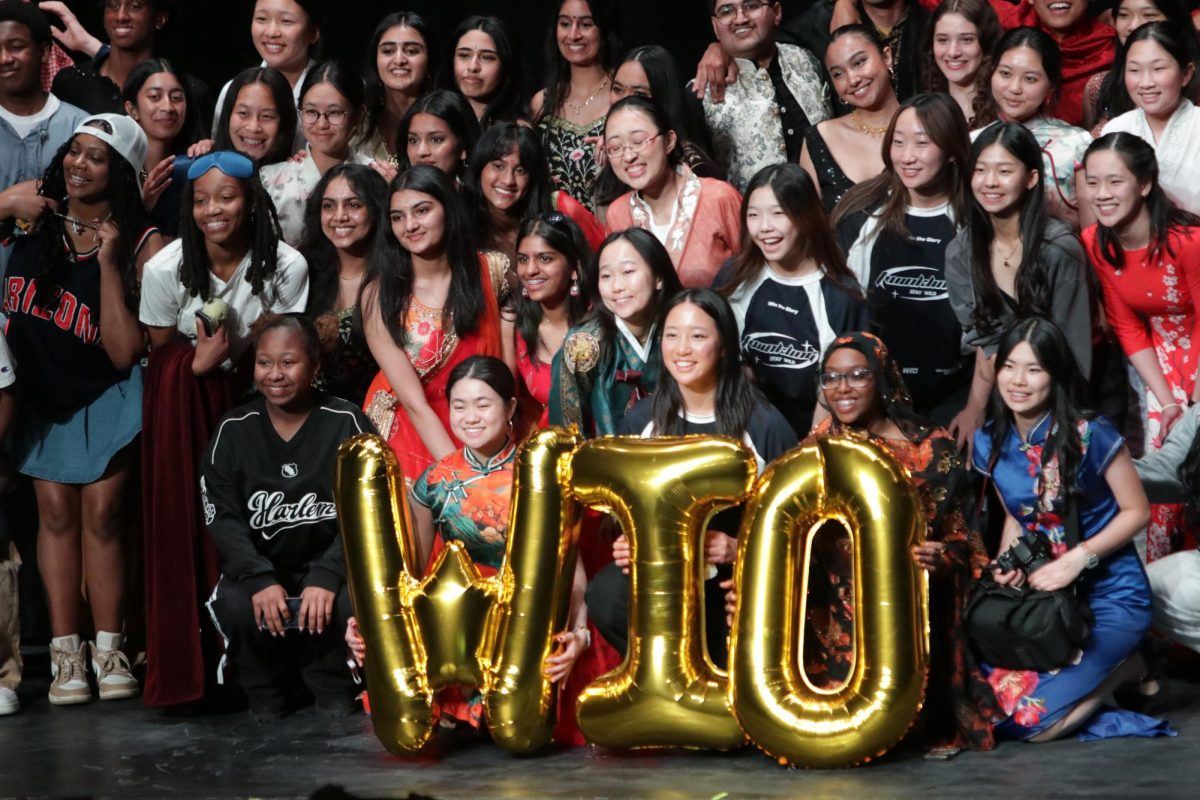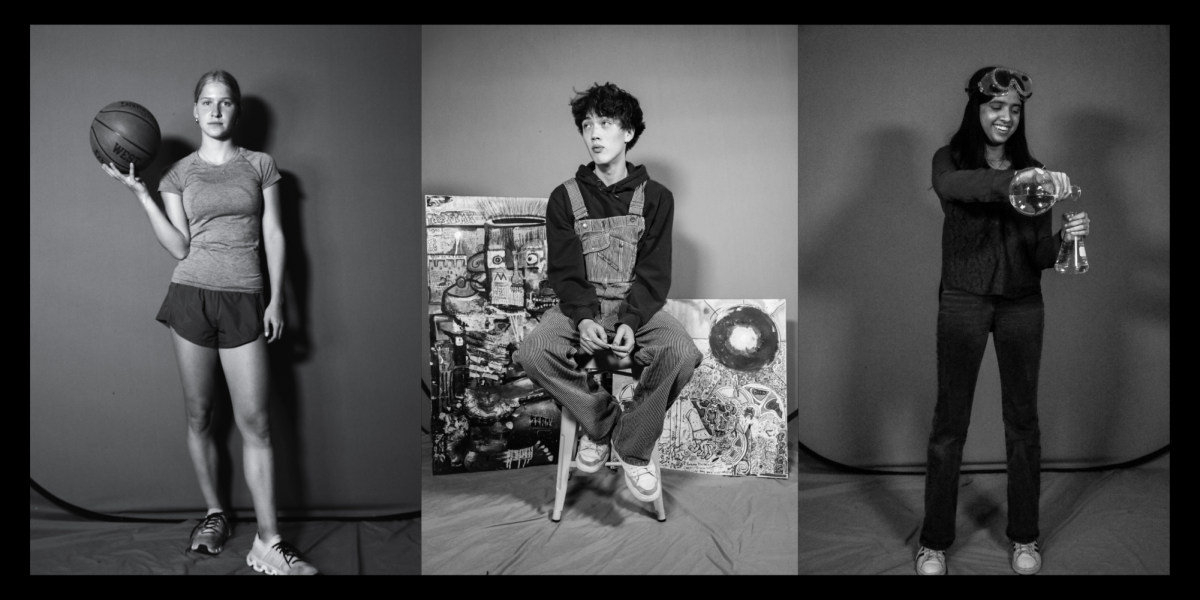Content Warning: This movie review contains spoilers and references to sexual themes.
“Challengers” is a movie leading up to the tennis game between Mike Faist’s Art Donaldson and Josh O’Connor’s Patrick Zweig, but don’t be fooled; this entire movie is the game itself.
The movie has a simple premise on the surface: Tashi Donaldson, a former tennis player and now coach, has led her husband Art to tennis stardom. Due to Art’s losing streak, she pulls him from his games and puts him into a low-level tournament, where he finds himself against his former best friend and Tashi’s former boyfriend, Patrick.
However, this simple overview allows the details to do the talking. From the beginning, we see the obsession that hounds Tashi’s every move and the control she exerts over her husband Art, shaping his entire tennis career. We see Art’s compliance regarding Tashi’s coaching, but it’s clear from the first moment he’s lost his passion for the sport. The only thing stopping Art from quitting is the pressure he feels from Tashi due to her injury. And the wild card, Patrick: A horrible man, a washed-up tennis player, desperate for a win but never able to get it. The three are intricately tied into a complex relationship where it seems nobody can ever win.
The most intriguing performance comes from Zendaya. Zendaya’s Tashi Donaldson is a remarkable character, one you watch with equal parts terror and fascination. After losing her tennis career in a horrifying accident, she has retired and turned into a coach, but inherently, she is much more.
Tashi is the puppetmaster, always positioned behind Art as he steps onto the court, watching and directing him. Art is a willing and pliable puppet, and that is what she needs to stay alive. Without controlling the game, Tashi would be nothing. And nothing matters to her besides the game, not even her husband.
Tashi is inherently a tennis player first, a coach second, and a wife third. She is obsessive, expressionless, cold, and willing to do anything to win, to feel the connection on the court.
Tashi’s most memorable scene, which still flashes behind my eyelids hours later, is this: Tashi lunging for the ball, in her prime and a league entirely of her own, and her knee simply snapping. It’s disgusting, so loud, so shocking, and absolutely sickening. As the camera focuses directly on the unnatural bend and shatter, we see her fall. It is the first and last moment we ever see Tashi crumble, her wailing sobs filling the theater because it’s evident to her: it’s over.
Her injury leads to her breaking up with Patrick and developing a connection with Art, which eventually leads to their marriage, but also what puts her obsessive behavior at the forefront of the plot.
It’s clear she’s not exactly the most normal person early on. After initiating a kiss between herself, Art and Patrick, she instead directs them to make out with each other instead of her. She creates conflict between the two on multiple occasions, leading to palpable tension. Even during Tashi and Art’s marriage, there are still many issues with their relationship, from infidelity to a lack of love.
These flaws are what make Tashi such an interesting character. She is not one you root for, but she’s one you can almost understand. She lost the one thing she was good at at the peak of her career and would do anything to get her life back. However, it’s simply not possible, leading her to live her life vicariously through Art. She doesn’t feel love for him, but needs him to exist.
I believe I’ve waxed poetic about Zendaya; the real heart of the movie is the relationship between Art and Patrick. On a surface level, they are best friends, but they are clearly so much more. From the time skips, we learn that 13 years ago, the boys were doubles partners. They won championships together and were best friends for many years.
However, there are many moments between the two which cause tension. While Art and Patrick are trying to get Tashi’s number, she asks if she is “homewrecking” them. At the hotel together, they tell Tashi a provocative story of the two, and a short while later, they make out while Tashi watches. The two always seem to be touching and have repeated moments of eating phallic foods while staring at the other, even feeding the other said foods.
Truly, the most important relationship is between Art and Patrick, not between the two and Tashi. They rile each other up and pull each other back together. Their bond is broken by Tashi’s imposition into their lives, and neither of them knows how to go on now that she is here.
In the end, it’s the final scene that encompasses their relationship. Ready to serve, Patrick touches the ball to his racquet as a callback to their teenage years, hoping to break Art’s mind. Art throws the following points, bringing them up to a tie, and then serves the final ball. Sweaty, full of rage, with both their careers on the line, they instead slow down to grin at each other, joy filling their faces as they meet again, and the round begins. A back and forth full of rage, power and understanding, Art jumps up right at the next to slam the ball down, and what does Patrick do? He drops his racquet to catch Art and hug him instead of even trying to counter.
As Tashi says, “[Tennis] is a relationship…we understood each other completely. So did everyone watching. It’s like we were in love.”
The movie wouldn’t be as incredible without the absurd sound design by Trent Reznor and Atticus Ross. This duo is behind other acclaimed movies, such as “The Social Network,” “The Girl with the Dragon Tattoo,” “Watchmen,” and “Gone Girl.” The music is electronic, full of beats that might seem enthusiastic if taken without context. However, the music plays during the tensest moments, the game to decide it all, adding to the overwhelming tension. The horrifyingly strong wind as Tashi and Patrick argue outside before having sex in the back of his car, and the wind whistles through a crack in the window as Tashi returns to her daughter and husband in her hotel room. The crack of the tennis ball against the racquets marks a jump between years and keeps you constantly on your toes.
The editing is simply on an entirely different level. Full of shots that someone wouldn’t even dream of creating, like putting the camera in the middle of the game as Tashi slams the ball right next to the camera, barely avoiding it and making the audience feel the wind it left behind. Or when Art prepares to serve the ball, and we look up at him from the ground, seeing the soles of his feet and the ball pounding against the invisible floor, dark lines of the tennis court working to create an incredible shot. Or perhaps when Art’s sweat drips onto the camera, fogging it.
Most remarkable is the camera work, by Sayombhu Mukdeeprom, during the final points. For a minute, you become Art and Patrick playing against each other. The camera bounces from the point of view of one player to the other as the ball flies into your racket. Then suddenly, you are the ball, flying across the court, spinning around and bouncing back and forth to decide the fate of these two men.
“Challengers” is not a movie about creating perfect scenes to go on posters. This movie is about living the exact moment in its rawest form, being engulfed in the game.
Overall, this movie makes you sit and think hours after it ends. All the little details, such as Tashi and Art’s debatable relationship, the performance enhancers Patrick alludes to taking, the causes of Patrick’s fall, and the depth behind Art and Patrick’s relationship, are so wonderfully executed that they stay in your mind days after.
This movie is messy, raw and mesmerizing. It makes you feel such a plethora of emotions that you wonder how you’ll be able to recover. It’s anxiety-inducing and so sick that it’ll have you gasping and then snickering a moment later.
To conclude, Luca Guadagnino’s “Challengers” receives a 9/10.























